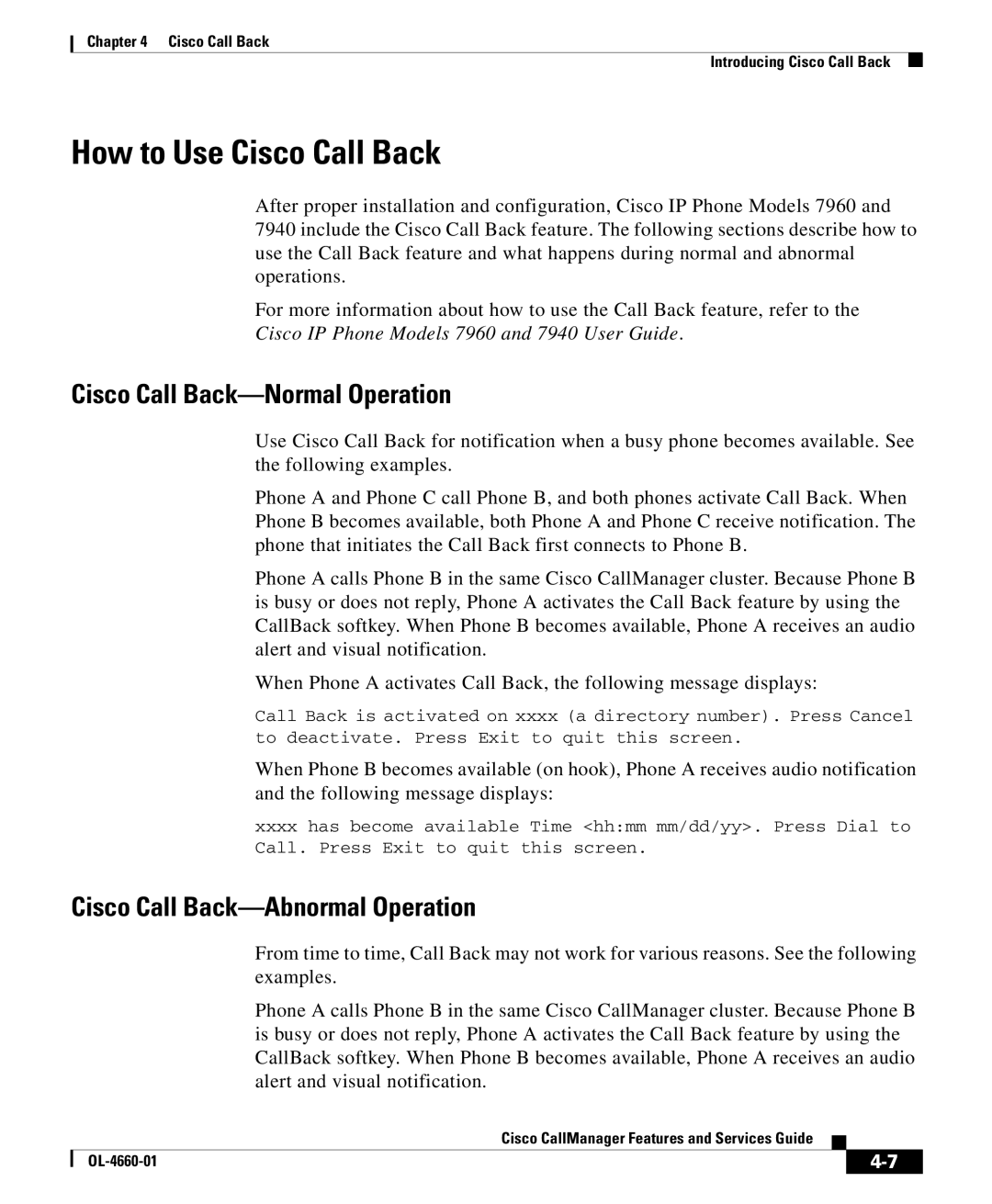Chapter 4 Cisco Call Back
Introducing Cisco Call Back
How to Use Cisco Call Back
After proper installation and configuration, Cisco IP Phone Models 7960 and 7940 include the Cisco Call Back feature. The following sections describe how to use the Call Back feature and what happens during normal and abnormal operations.
For more information about how to use the Call Back feature, refer to the
Cisco IP Phone Models 7960 and 7940 User Guide.
Cisco Call Back—Normal Operation
Use Cisco Call Back for notification when a busy phone becomes available. See the following examples.
Phone A and Phone C call Phone B, and both phones activate Call Back. When Phone B becomes available, both Phone A and Phone C receive notification. The phone that initiates the Call Back first connects to Phone B.
Phone A calls Phone B in the same Cisco CallManager cluster. Because Phone B is busy or does not reply, Phone A activates the Call Back feature by using the CallBack softkey. When Phone B becomes available, Phone A receives an audio alert and visual notification.
When Phone A activates Call Back, the following message displays:
Call Back is activated on xxxx (a directory number). Press Cancel to deactivate. Press Exit to quit this screen.
When Phone B becomes available (on hook), Phone A receives audio notification and the following message displays:
xxxxhas become available Time <hh:mm mm/dd/yy>. Press Dial to Call. Press Exit to quit this screen.
Cisco Call Back—Abnormal Operation
From time to time, Call Back may not work for various reasons. See the following examples.
Phone A calls Phone B in the same Cisco CallManager cluster. Because Phone B is busy or does not reply, Phone A activates the Call Back feature by using the CallBack softkey. When Phone B becomes available, Phone A receives an audio alert and visual notification.
|
| Cisco CallManager Features and Services Guide |
|
|
|
|
| ||
|
|
| ||
|
|
|
